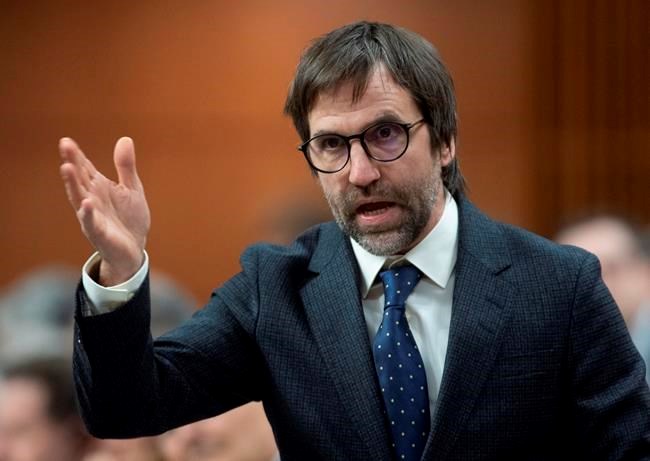Heritage Minister Steven Guilbeault's promise to introduce legislation that would force tech giants like Facebook to pay Canadian media companies for their content is taking far too long, experts say.
Guilbeault blasted Facebook earlier this week after the company blocked Australian users from posting or seeing links to local or international news websites in response to the country's plans to make social media companies negotiate payments to publishers there.
Facebook’s move is “highly irresponsible" because it has restricted Australians’ access to important information such as crisis hotlines and news about forest fires, Guilbeault said.
“If I was the leadership of Facebook, I think I would take a long, hard look at the mirror and really wonder what if I’m doing is the right thing," he added.
"It won’t deter us from moving ahead."
Guilbeault has long been at work on a federal bill that would put an end to the ability of global tech giants — including Facebook, Google, Apple, Twitter and Netflix — to rake in tens of billions of dollars each year without paying tax in the countries they operate in, while simultaneously putting a strain on Canadian media and creator earnings.
He may follow Australia's lead and seek compensation from these companies for news links, but Canadians likely won't know what direction he is leaning until spring, when his legislation is expected to be unveiled.
"We've just been waiting and waiting and waiting and we've had promises, but it's always later, later, later," said Daniel Bernhard, the executive director of media watchdog group Friends of Canadian Broadcasting, on Friday. "I believe the minister is serious (about regulating tech), but now he needs to prove it."
Meanwhile, Bernhard said media organizations are complaining their revenues are shrinking and they're turning to layoffs to combat the impacts of tech giants.
The delay is also giving Facebook time to bolster its arguments and put more pressure on politicians to take its side, he said.
The company says the Australian model is unfair because news publishers are in control of what gets posted on Facebook because they choose to post it themselves or people share a link to it.
“We aren’t able to provide a reaction to proposed legislation until we have seen a draft," Kevin Chan, Facebook Canada's global director and head of public policy, said in a statement.
"We believe there are other options to support news in Canada that will more fairly benefit publishers of all sizes and recognize the value that platforms bring to news organizations. We stand ready to collaborate on these complex issues.”
Bob Fay, managing director of digital economy at the Centre for International Governance Innovation, said Facebook's approach to Australia could hurt the company.
"How many countries can they really afford to start doing that in?" he questioned.
"It just undermines their business model completely, so I think this emboldens countries to take action."
Fay thinks the best action would be some kind of global norm, so tech companies aren't left to deal with each country individually.
Google, for example, has reached a voluntary deal with Australian publishers and could mimic that model elsewhere, but Guilbeault has warned that could be scrapped at any time, if Google changes its mind.
Regardless of the approach, Fay believes time is of the essence.
"What's going on in Australia has lit a fire, but there's been fires burning for a long period of time and yet we haven't seen concrete action, so we'll see if this is enough of a fire or whether it needs to be stoked even more."
This report by The Canadian Press was first published Feb. 19, 2021.
———
Facebook funds a fellowship that supports journalism positions at The Canadian Press.
Tara Deschamps, The Canadian Press



